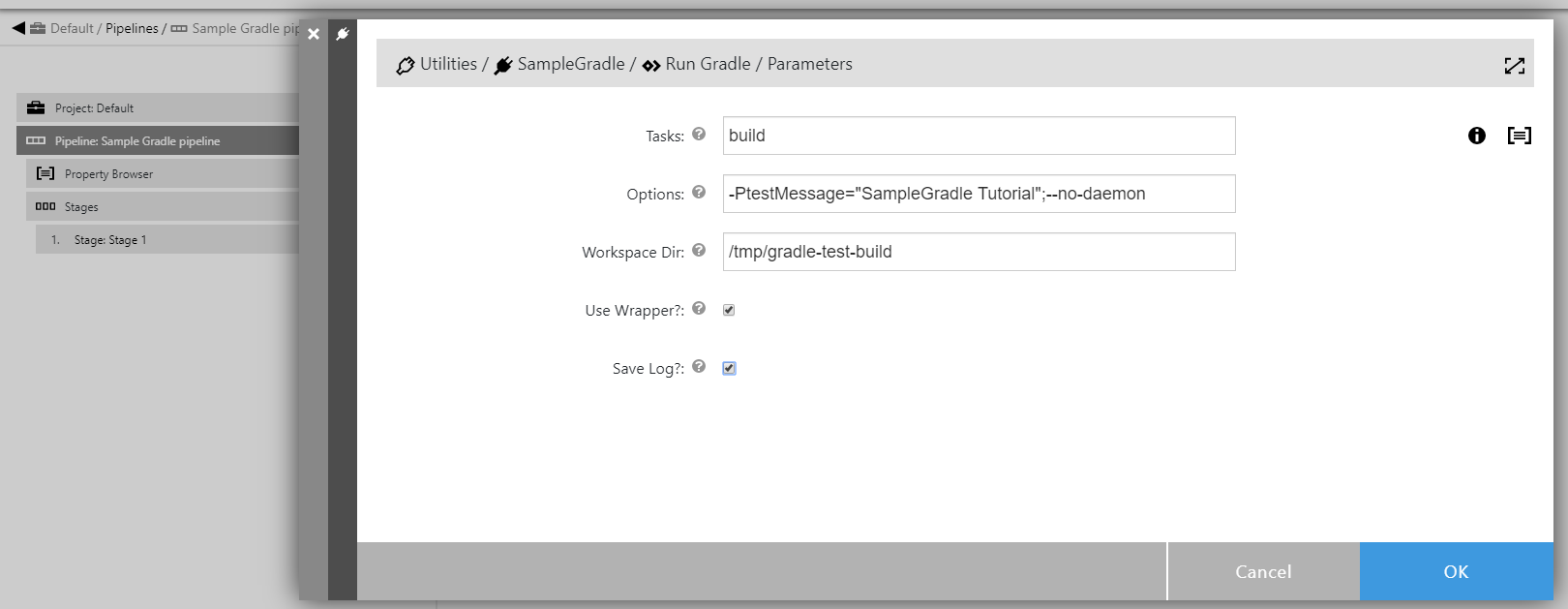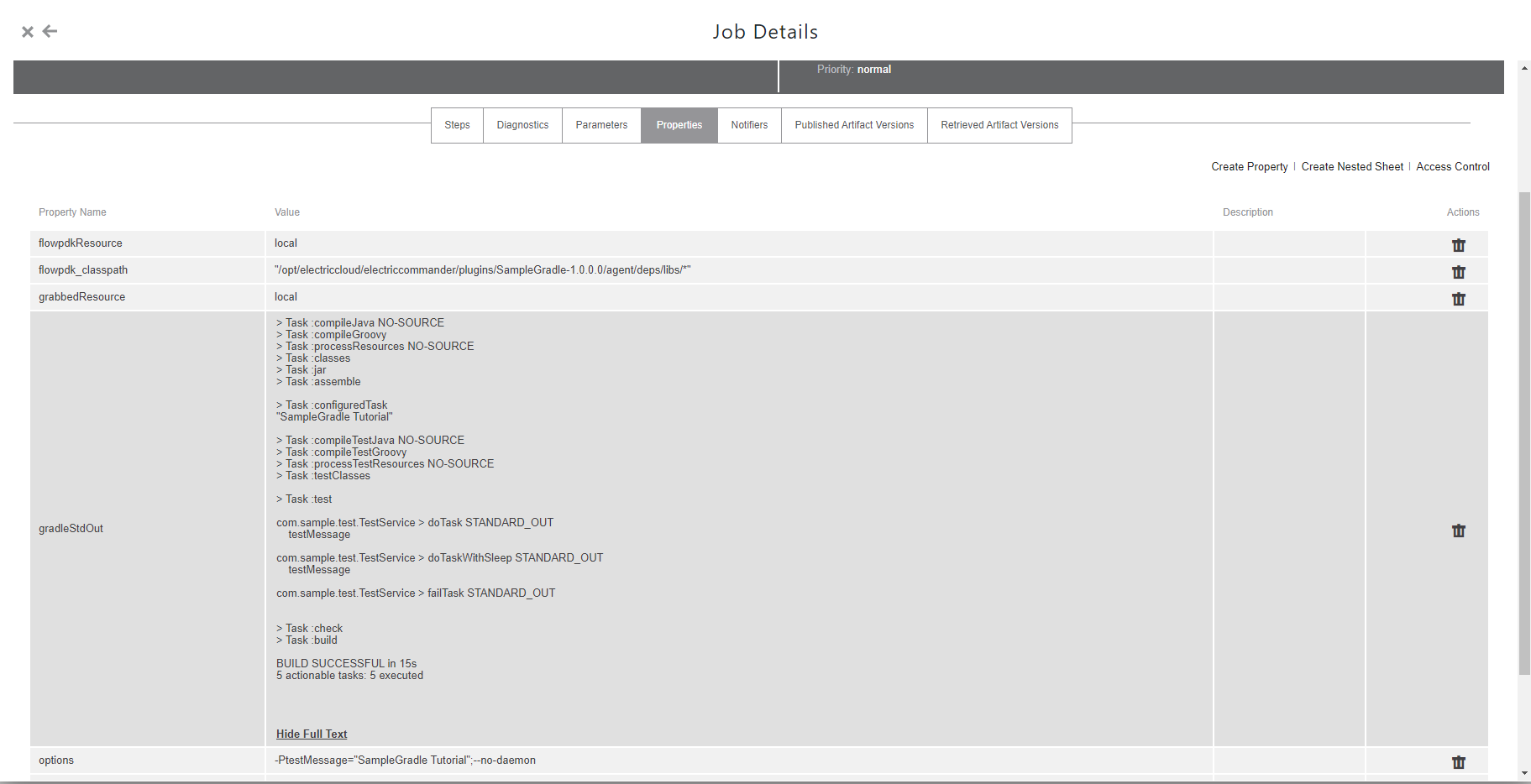Basic - CLI Plugin¶
Introduction¶
This basic tutorial provides instructions to create a Basic CLI Plugin called SampleGradle that demonstrates how a plugin can be used to automate interaction with an application using command line executable. The showcase includes usage of the ComponentManager and a CLI component.
Prerequisites¶
These are assumptions for this Tutorial.
Introductory Tutorial has been completed.
flowdpk is installed and setup.
An active CloudBees Flow instance.
Git and Java Runtime Environment installed on the CloudBees Flow host.
Internet connection.
A GitHub account.
Step 1 : Generate a plugin using sample spec from Github¶
After making sure flowpdk is available in your PATH, create a plugin workspace, typing the name SampleGradle and plugin language groovy for the plugin. Copy pluginspec.yaml from the cloned repository to the config directory of your plugin and generate the plugin.
cd ~/work git clone https://github.com/electric-cloud-community/flowpdf ~/temp/flowpdf flowpdk generate workspace cp ~/temp/flowpdf/groovy/SampleGradle/config/pluginspec.yaml SampleGradle/config cd SampleGradle flowpdk generate plugin
You can examine the generated plugin structure. There is a procedure called ‘RunGradle’ that we will use to perform the Gradle activities.
Step 2 : Add the plugin procedure logic¶
Open dsl/properties/groovy/lib/SampleGradle.groovy.
Import the ComponentManager class and the cli package
Copy the the runGradle method from given sample code and replace the method.
Step 3 : Build, Install, and Promote the Plugin¶
Use flowpdk to build the plugin. Install the zip in CloudBees Flow and promote it.
Step 4 : Use Plugin to perform gradle run¶
Prepare the gradle project on the CloudBees Flow host:
Note: Preparing gradle project on the CloudBees Flow host is required to run plugin on the ‘local’ agent and is only intended for simplicity. If you are familiar with agents, you can use any host with a Java capability.
git clone https://github.com/electric-cloud-community/gradle-test-build /tmp/gradle-test-build chown -R build /tmp/gradle-test-build
Create new pipeline. Refer to Introductory - Jenkins if you need help with creating a pipeline.
Add a task for SampleGradle:Run Gradle to the default stage with following parameter values:
Tasks: build
Options: -PtestMessage=”SampleGradle Tutorial”;–no-daemon
Workspace Dir: /tmp/gradle-test-build
Use Wrapper?: yes (checked)
Save Log?: yes (checked)

Now run the pipeline and wait for it to finish:

You can open job details and see the build output in a job property:

Step 5 : Summary¶
This Summary is provided in order to help a Developer conceptualize the steps involved in the creation of this plugin.
- Specification
pluginspec.yaml provides the declarative interface for the plugin procedure RunGradle.
- Generated Code
All the plugin boilerplate code was generated by the flowpdk. The only thing we had to change was the step logic.
- User Modifications
Implemented logic for parsing parameter values, running the command and capturing the results.
Using ComponentManager to instantiate CLI component instance
- Used Libraries: